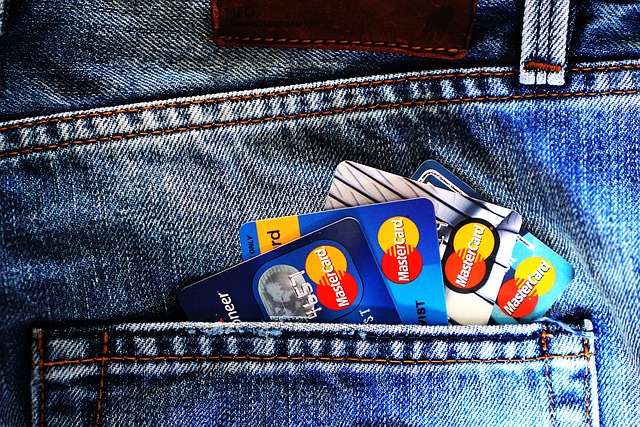Learn About Credit Card Options That Don’t Require a Traditional Bank Account
Struggling with credit or don’t have a checking account? You may still have options when it comes to getting a credit card. This article breaks down how alternative approvals work. Learn what to consider before applying and how to compare offers. It’s all about finding what fits your situation.

What credit cards work without checking accounts?
Several types of credit cards don’t require a traditional checking account for approval. Secured credit cards are the most common option, requiring a cash deposit that serves as your credit limit. These cards function like regular credit cards but use your deposit as collateral. Prepaid credit cards offer another alternative, though they don’t build credit history since you’re spending your own deposited funds rather than borrowed money.
Student credit cards often have more flexible requirements and may accept alternative forms of verification beyond checking account statements. Some major issuers also offer unsecured cards specifically designed for people with limited banking history, focusing more on income verification and employment status than traditional banking relationships.
How do bad credit card approvals work differently?
When you have bad credit or no credit history, card issuers use alternative evaluation methods. Instead of relying heavily on credit scores and banking history, they may consider factors like employment stability, income consistency, and rental payment history. Some issuers partner with services that track utility payments, rent payments, and other regular expenses to assess your financial responsibility.
The approval process typically involves providing additional documentation such as pay stubs, tax returns, or employment verification letters. Bank statements from non-traditional accounts, money transfer services, or even cash flow documentation can sometimes substitute for checking account records. These alternative verification methods help lenders assess your ability to make payments without requiring traditional banking relationships.
Can you build credit without traditional banking?
Building credit without a checking account is entirely possible through strategic card usage and payment management. Secured credit cards report to major credit bureaus just like traditional cards, helping establish your credit history when used responsibly. Making on-time payments and keeping balances low demonstrates creditworthiness regardless of your banking situation.
Alternative payment methods can support your credit-building efforts. Many card issuers accept payments through money orders, prepaid debit cards, or third-party payment services. Setting up automatic payments through these alternative methods ensures consistency and helps avoid late fees that could damage your developing credit profile.
Which providers offer no checking account cards?
Several major financial institutions provide credit card options without checking account requirements. Capital One offers secured cards with relatively low deposit requirements and graduation opportunities to unsecured cards. Discover’s secured card provides cashback rewards and free credit score monitoring, making it attractive for credit builders.
Credit unions often provide more flexible approval criteria and may work with members who don’t have traditional banking relationships. Online lenders and fintech companies have emerged as significant players in this space, using alternative data and technology-driven assessment methods to evaluate applicants beyond traditional banking criteria.
What makes Switzerland’s credit card market unique?
Switzerland’s financial landscape presents distinct considerations for those seeking credit cards without traditional banking. Swiss banks traditionally require higher minimum balances and more extensive documentation than many other countries, making alternative credit options particularly valuable. However, the country’s strong consumer protection laws ensure that even alternative credit products maintain high standards.
Swiss residents can access international credit card providers alongside domestic options, potentially finding more flexible approval criteria through online applications. The country’s multilingual financial services sector means applications and support are typically available in German, French, Italian, and English, making these products accessible to diverse populations regardless of their primary banking relationships.
How do costs compare across different card types?
Understanding the cost structure of various credit card options helps you make informed decisions based on your financial situation. Different card types carry varying fee structures and requirements that impact their overall value.
| Card Type | Annual Fee Range | Deposit Requirement | APR Range |
|---|---|---|---|
| Secured Cards | CHF 0-50 | CHF 200-1000 | 18-25% |
| Prepaid Cards | CHF 20-60 | Variable | N/A |
| Student Cards | CHF 0-30 | None | 16-23% |
| Alternative Approval | CHF 25-75 | None | 20-28% |
Prices, rates, or cost estimates mentioned in this article are based on the latest available information but may change over time. Independent research is advised before making financial decisions.
What should you consider before applying?
Before applying for any credit card without a checking account, evaluate your long-term financial goals and current situation. Consider whether you need to build credit history, require purchasing flexibility, or simply want access to electronic payment methods. Understanding your primary purpose helps determine which card type best serves your needs.
Research each issuer’s specific requirements and policies carefully. Some cards offer graduation paths to better products, while others provide immediate rewards or benefits. Compare not just approval requirements but also long-term value, fee structures, and potential for account upgrades as your financial situation improves.
Finding the right credit card without a traditional bank account requires understanding your options and matching them to your specific circumstances. Whether you choose secured cards, alternative approval products, or specialized programs, responsible usage can help you build credit and access financial services regardless of your banking background. Focus on cards that report to credit bureaus, offer reasonable fees, and provide clear paths for account improvement over time.




